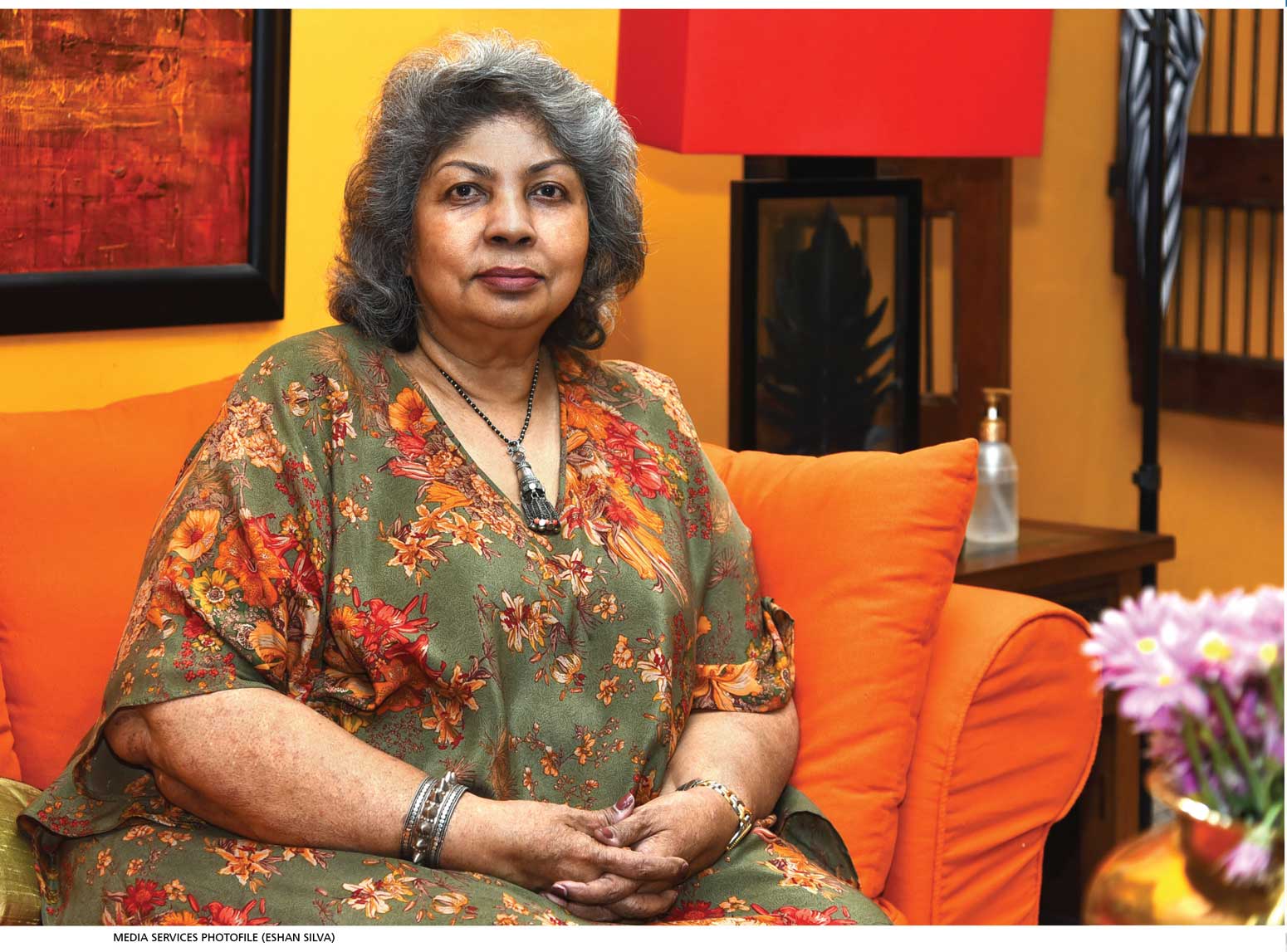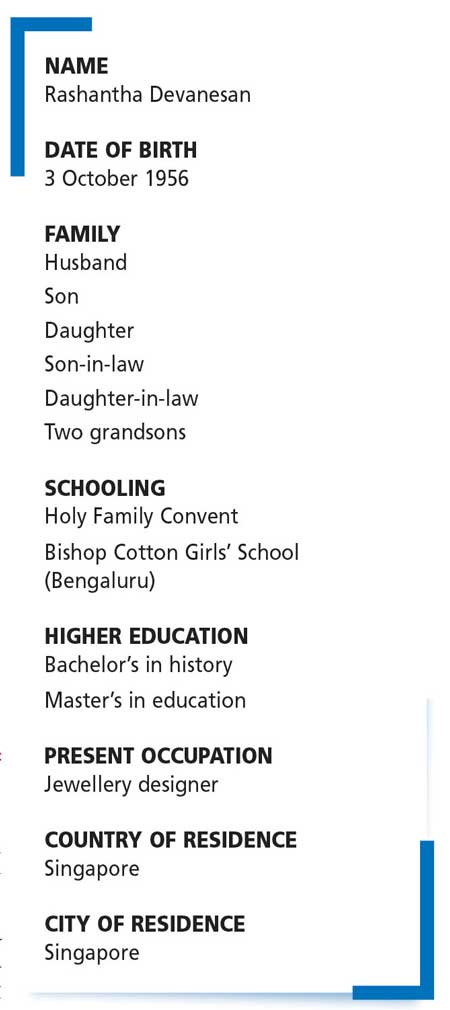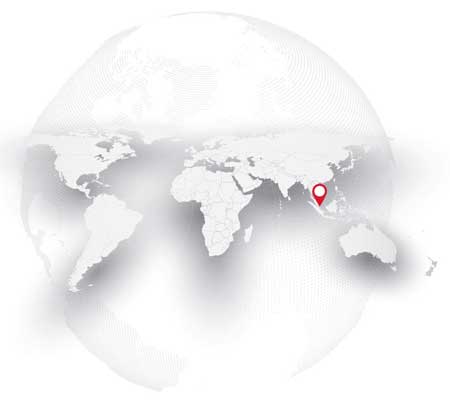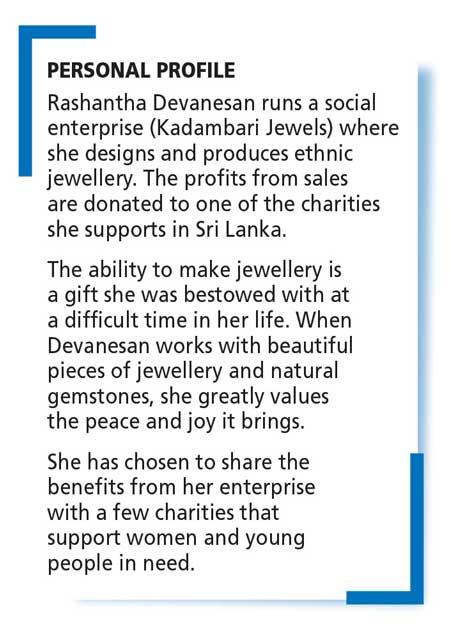SRI LANKANS OVERSEAS

WHERE THE GRASS IS GREEN
Rashantha Devanesan
Why the grass isn’t always greener on the other side – money aside
Q: How do you perceive Sri Lanka today?
A: I am very positive about Sri Lanka right now. If you compare it with what we went through about nine months ago, there’s been a quick reversal.
My only concern is how sustainable this reversal might be. But in spite of rising prices and some other negative aspects, we seem to be heading in the right direction.
Q: Do you think Sri Lanka is capable of regaining its composure in the aftermath of multiple crises?
A: Yes. But we need to build confidence among the youth to stop them from constantly looking to leave the country.
If we compare the quality of life in Sri Lanka with that of other nations, it is easier, safer and a lot more fun than in most other developing countries. If Sri Lankans imagine that the grass is always greener on the other side mainly because of monetary issues, we are going to find many young people wanting to leave.
Therefore, we need to develop small industries and diverse vocations in and around the island so that the talented young population isn’t underutilised.
Q: What advice would you offer Sri Lankans in the context of crisis management and finding solutions to the problems they face?
A: I think we have to leave crisis management to the government because it’s very difficult for individuals to find macro solutions.
In terms of micro solutions however, many people have managed to overcome shortages of gas for instance, by opting for inverter cookers or using firewood.
Most homes have garden space where vegetables can be grown. Some may think that growing chilies is not a big deal – but actually, it is. Agriculture has to be strongly encouraged; because if we don’t have food, we won’t be able to achieve anything.
Q: How do compatriots in your country of domicile view Sri Lanka?
A: Knowledge about Sri Lanka is rarer in Asia than it should be. Many in Singapore, Malaysia and India are quite surprised about what Sri Lanka is truly like.
We’re not doing enough to get information about the island out there. Instead, we focus on the West and low spending Western tourists who will visit the country anyway.
There isn’t enough attention being given to encourage wealthy Asians to visit Sri Lanka. It’s easier to travel to the island from Singapore, Thailand, Malaysia and Japan.
Q: What were your impressions of Sri Lanka on your last visit – and how much has it changed from the past?
A: I was in Colombo in February last year when we were on the brink of sliding into chaos. There was a fear that it would descend into anarchy. We were very alarmed at first; but later, we became quite positive about the fact that there was very little violence.
On my recent visit in January, I noted that life is all right for many people – and I think it looks like it’s getting better. So that’s good news.
Q: How do you view the brain drain – and why is there still no reversal of it, in your opinion?
A: India experienced a brain drain in the 1960s, ’70s and ’80s. Today, many Indians are returning to their homeland because there’s a lot going on locally.
We too need to do that in Sri Lanka. I feel that there are many things we can learn from India, Bangladesh and Singapore.
In the context of the apparel industry for instance, our neighbour India is foremost in the world in terms of producing textiles. We should obtain Indian expertise, and develop our own designs and fabrics.
And an effort should be made to develop market gardens and ask small groups of young people to manage them.
There’s huge potential to develop initiatives such as these in Sri Lanka so that people don’t feel there’s a need to migrate and do a mundane job overseas simply to earn enough to live.
Q: And last but not least, what should Sri Lanka focus on most in the coming decade?
A: Sri Lanka needs a stable government with a sound economic outlook because a strong economy is essential for a country to function properly.
I think steps are being taken to achieve this… because otherwise, there are going to be periodic crises.
– Compiled by Dona Senara









Leave a comment